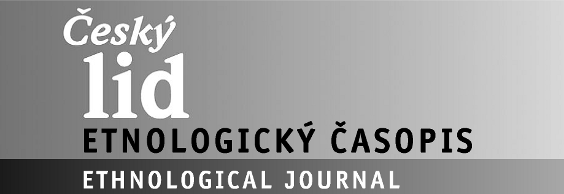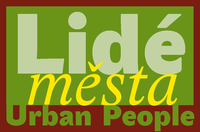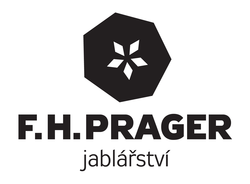Echoes of Antropofest arrive to Bratislava, Slovakia. You can watch Mass and Five Lives, all directors will be there. They will also debate about visual anthropology. Café Satori Stage, 6p.m.
INTRODUCTION
Antropofest is an international festival of movies with social anthropological themes.
Festival is held by eponymous NGO, formed by social anthropology graduates. The goal of the festival is to introduce the general audience to the movies that could also be one of the important study instruments of our domain. These specific documents will allow us to learn about the life of various human communities, social groups or individuals around the world.
During the festival we will hold debates on current projections and there will be also other accompanying programme.
We are looking forward to you!
NEWS
"Echoes of Antropofest" continued in Pardubice, 4th April from 5pm. You will watch: Masa, Five lives, Problems of Elites, In the Rythm of the City and Sacred Water. Screening will take place at University of Pardubice, bulidinf EB, room E2.
We would like to invite you to ECHOS OF ANTROPOFEST TO NITRA, Slovakia.
Screenings will take place on 30th March from 5pm in Fotogaléria Trafačka during "Ethnological days" organised by Department of Ethnology and Folklore of University KF in Nitra, Slovakia.
You can watch these movies: British Born Chinese, Gurumbé and Between Islam and Sacred Forest.
Firts "Echos of Antropofest" will take place at Maňana Bar, Žižkovo nám 6, Jičín at 10th and 11th of March from 4pm in both days. We will screen this movies: A Report About Mina, Dust, Gurugu, Haying Time, Masa, Nobel Nok Dah, Pět Životů, Sacred Water, Tama Gaun - The Cooper Village.
Guests of Antropofest 2017 are: Michal Pavlásek and Ivo Bystřičan (Masa), Jaroslava Panáková (Pět životů), Marcel Romanutti (Problematika elit), Ondřej Raffel (V rytmu města), Frode Storaas (Tama Gaun), Evgeny Aleksandrov and Elena Danilko (Haing Time), Deepak Tolange, Christoph Siegel, Anisha Gosh (Dust). Let´s discuss with them about theirs movies!!
SCHEDULE
27.01.2017 : Sál A
| 18:30 | Opening Ceremony |
| 18:35 | Bridge to Kobane |
| 19:00 | Gurugu |
| 19:05 | Masa |
| 19:40 | Discussion |
| 20:20 | A Report about Mina |
| 21:25 | Gurumbé. Afro-Andalusian Memories |
27.01.2017 : Sál B
| 18:30 | Opening Ceremony |
| 18:35 | Bridge to Kobane |
| 19:10 | Teteyotes. Stones Gods. |
| 20:00 | Nobel Nok Dah |
| 20:35 | Etnografie-film-dokument |
28.01.2017 : Sál A
| 14:30 | British Born Chinese |
| 15:25 | Extended family |
| 16:00 | Haying time |
| 16:45 | Discussion |
| 17:25 | Dust |
| 18:20 | Discussion |
| 18:55 | Tama Gaun - The Copper Village |
| 20:25 | Discussion |
| 21:00 | Sacred Water |
| 21:55 | Closing Ceremony |
28.01.2017 : Sál B
| 14:30 | V rytmu města |
| 14:35 | Problematika elit |
| 14:50 | Discussion |
| 15:10 | My Antropo Films |
| 15:25 | Etno-film: Mezi tradicí a experimentem |
| 16:30 | These Objects, Those Memories |
| 17:00 | Discussion |
| 17:40 | Between Islam and Sacred Forest |
| 18:30 | Discussion |
| 19:15 | Pět životů |
| 20:20 | Discussion |
| 21:00 | Sacred Water |
| 21:55 | Closing Ceremony |
MOVIES
MY ANTROPO FILMS
Česká republika, 2017, 10 min
My Street Films
28.01.2017 15:10
My Street Films aims to interconnect the young generation and audiovisual industry professionals. The online audiovisual map mystreetfilms.cz/en works with general audiences and people interested in media culture in an attractive way. Now we interconnect My Street Films and Antropofest.
PĚT ŽIVOTŮ
Slovenská republika, 2016, 65 min
J. Panáková
28.01.2017 19:15
 Viktor Valerevich Mumikhotkak also known as „Mukha", Yupik Eskimo from the hamlet New Chaplino (Chukotka, Russia), died tragically in 2012. Somebody stabbed him in his abdomen and cut off his fingers. In 2014, when young Alla Ukuma gave birth to her first son, her mother told her: „Last night I saw Mukha in my dream. He had come back in your boy. Let us name your baby Viktor". According to the local people, the dead can return to the realm of the living up to five times. This film essay on life, death and possible return poses the universal question: How do you confront your own end?
Viktor Valerevich Mumikhotkak also known as „Mukha", Yupik Eskimo from the hamlet New Chaplino (Chukotka, Russia), died tragically in 2012. Somebody stabbed him in his abdomen and cut off his fingers. In 2014, when young Alla Ukuma gave birth to her first son, her mother told her: „Last night I saw Mukha in my dream. He had come back in your boy. Let us name your baby Viktor". According to the local people, the dead can return to the realm of the living up to five times. This film essay on life, death and possible return poses the universal question: How do you confront your own end?
Jaroslava Panáková received her PhD in Social Anthropology at St. Petersburg State University in Russia and MA in documentary cinema at FAMU Prague, Czech Republic. Since 2001 she has been studying indigenous peoples of Polar Russia. She combines her fieldwork with the filmic approach. Author's short film "The seagull flying against the wind" (2005) was screened at the IFF in Jihlava and at the festival Oneworld. Her medium-length film "Being tourist at home" (2009) participated in 2009 at the East Silver market in Jihlava and in 2010, won the first Prize at the TOCOCU festival in Lisboa. Her long-feature film, Five Lives (2016), was claimed "the best doc on survival of indigenous peoples" at the XXX PÄRNU Film Festival.
Direcotr, camera, script: J. Panáková
Production: J.Panáková, spolek PAMODAJ
Edit: Šimon Špidla
Language of Dialogues: Russian
Language of subtitles: Slovak
NOBEL NOK DAH
USA, 2015, 23 min
E. Hong, M.Lai, M.Mihai
27.01.2017 20:00
 Nobel Nok Dah offers an intimate view into the lives of three refugee women from Burma, whose migratory paths cross in Thailand and eventually meet when they resettle to central New York. Drawing upon methods of feminist oral history and ethno-fiction, the film traces glimmers of subjectivity that complicate any singular narrative of the refugee experience. As camera movements follow the textures of everyday life and work, a weave of sensorial fragments immerse audiences in women's narratives of self, place, and belonging.
Nobel Nok Dah offers an intimate view into the lives of three refugee women from Burma, whose migratory paths cross in Thailand and eventually meet when they resettle to central New York. Drawing upon methods of feminist oral history and ethno-fiction, the film traces glimmers of subjectivity that complicate any singular narrative of the refugee experience. As camera movements follow the textures of everyday life and work, a weave of sensorial fragments immerse audiences in women's narratives of self, place, and belonging.
Emily Hong is a Seoul-born and New York-raised feminist anthropologist and filmmaker. A graduate of Columbia University and PhD Candidate at Cornell University, Emily’s research and professional expertise lies at the intersection of legal anthropology, media practice, and economic, social, and cultural rights. Emily has directed several collaborative films including Get By (2014), For My Art (2016), and Nobel Nok Dah (2015), which have explored issues of solidarity and labor, the gendered spectatorship of performance art, and questions of womanhood and identity in the refugee experience.
Miasarah Lai is a Puerto-Rican-Chinese-American director and cinematographer from the Lower East Side, New York City. As an MFA Candidate in Documentary Media at Northwestern University, she explores the physicality and performative role of the documentary cinematographer in the dance between the subject and its storytellers. Miasarah’sHer international body of work has included cinematography and directing for projects in Romania, Ghana, Myanmar, and China.
Mariangela Mihai, a Romanian Anthropology and Film PhD Candidate at Cornell University, has worked on issues of refugee political resettlement at the Emory Center for Ethics and the International Rescue Committee. Her current research looks at overlapping nationalisms, identity and ethnicity on the India-Burma border. Select film projects include: To Uphold the Law (2014), a film exploring ideologies of nationalism and anti-drone activism in Upstate N.Y.; and For My Art (2016), a twochannel video installation exploring the sensorial landscape of transition-era Burma/Myanmar through the figure of the performance artist.
Director, Camera, Edit: E. Hong, M.Lai, M.Mihai
Production: Ethnocine
Language od Dialogues: English
language of Subtitles: English, Czech
PARTNERS
Partners of AntropoFEST are
- Anthropictures
- Prager Cider
- Český lid
- Lidé města
- Sociologický časopis
- Česká asociace pro africká studia
- Radio 1
Thank you!
CONTACT
Don't hesitate and ask us or just send your movie (with apllication form) on email: [email protected]







